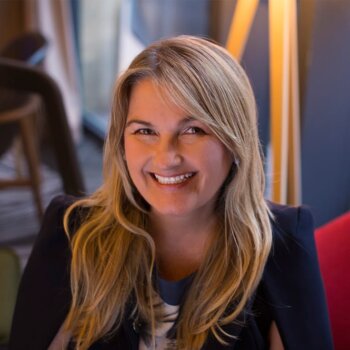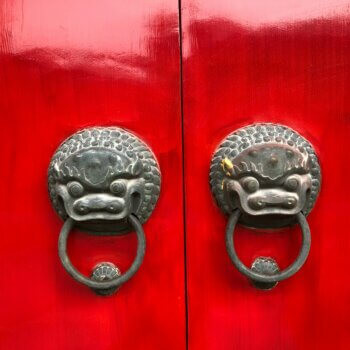Hendy Sentiono is one of Indonesia’s most prolific and celebrated entrepreneurs. In a nation of 240 million people, Hendy has built what is now, Asia’s largest kebab franchise, Kebab Turki Baba Rafi. As it currently stands, Hendy has over 1000 branches across Indonesia, with foreign branches in Malaysia, Philippines and branches being set up in the Europe as well. In his business empire, Hendy leads thousands of employees and franchisees. For his great accomplishments in the field of business and entrepreneurship, he has been awarded with numerous accolades and recently winning the prestigious Ernst & Young Entrepreneur of the Year Award. Kebab Turki Baba Rafi continues to innovate by introducing new foods, franchise business options and implementing environmentally and socially responsible practices, all of which are transforming the very complex landscape of Indonesia.
Hendy Sentiono speaks to the Asian Entrepreneur today about the story behind his business empire and the insights he has gained from starting up Kebab Turki Baba Rafi
What is Kebab Turki Baba Rafi all about?
Kebab Turki Baba Rafi is the world’s biggest kebab chain. Obviously, the kebab is our main product and what we are all about. We launched in 2003 in the Indonesian city of Surabaya. There are now approximately more than 1,000 outlets across Indonesia. Our outlets have even expanded into Malaysia, Philippines, and Southeast Asia. Now, we are entering into Netherlands.
Tell us about Europe, when can we expect the first store to open there?
Yes, we are preparing to enter the European market. First, we are going to do feasibility study in Amsterdam because we are planning to open the first European outlet there. After that, we have plans to open several outlets across other European cities. We are also getting some enquiry from other countries as well and we are still analyzing these enquiries before we go further with them.
What’s the story behind the founding of Kebab Turki Baba Rafi?
Well, I was visiting my father, who was an employee of an oil company in Doha, Qatar. During my visit, I fell in love with the local delicacy, the kebab. I was also amazed by its popularity. Immediately, upon returning to Indonesia, I borrowed US$ 400 from my sister and I bought my first kebab push-cart in Surabaya. However, I modified the taste of the kebab, to make it more Indonesian, using beef or chicken instead of lamb and swapping in more familiar Indonesian spices.
After opening for one week, the lines were so long that another three stands had to built within the year to accomodate for the demand. From 2003-2006, I worked to slowly build a brand, opening new carts, stands and storefronts while employing offline and online media techniques to spread the Baba Rafi name. Eager for faster growth, I decided in 2006 to introduce a franchise model. To attract potential franchise investors, I participated in company exhibitions, industry fairs and public events, promoting both a “can’t miss” business opportunity and a growing brand. Fifty cities later, and with 1000 plus links in the Baba Rafi chain, it is safe to say Indonesians have enthusiastically embraced the kebab.
What challenges did you face expanding your business?
I faced quite a lot of challenges. More directly, the challenges that I faced when I started to expand the business were various, I would say in the beginning of the business development I was facing difficulties in marketing and the supply of the raw materials to create my product. Right now, the challenges that I face in expanding the business overseas includes understanding the existing regulations, because the regulations maybe different with the ones that we have in Indonesia. I believe, one must understand them correctly and thoroughly the regulations that will be used and that will bind one as the basis for the cooperation in international trade. I also think that we must expand our knowledge about the countries that we are going to enter whether it is a good market or not. More importantly one has to understand about the mechanism of the procedures of business license application, trade mark application because there will be some differences compare to what we have in Indonesia.
How did you overcome these challenges?
I’ve always had a positive attitude and I’ve approached these thigns with the correct mindset because in my opinion the differences between challenges and opportunities are very slim. Building a business from scratch always requires a struggle that is not easy and certainly it involves extraordinary scarfices as well. My journey of getting to where I am today is not smooth and I could say that these obstacles are constantly colouring my own moves.
What is your approach to business development?
I approach the development organically. I learn everything about business along the way. I found out that developing a business like this has its positive and negative sides but I don’t want to focus on the negative sides instead I keep looking on the positive sides and maintain our targets. So with these attitudes, it brings us here to this point and I don’t want to settle yet, I believe I still have a lot to learn and to achieve and we are still a young company and our team also in average are young people so we believe that we can reach higher.
Are you afraid that the market may change its taste, if so what are your plans?
What I know about is that people still needs variety of foods thus I would like to grab the market with our products. Yes, I do understand that at some point the market will change somehow but I am confident with the team that I have that we can overcome any obstacles and move forward.
Could you share with us some lessons you have personally learnt whilst on the journey of setting up your business?
Of course. Some of the lessons I’ve learnt from this business, is that running a business can not be instant, all need a process, the ups and downs in a business are common and very reasonable. But how we can change our mindset in view of the failure and turn it into success. that is what distinguishes a person with another. As long as I am running this business, I am very grateful to have been awarded nationally and internationally in the field of entrepreneurship. I get a good relationship from business partners or other entrepreneurs. And I also had the opportunity to visit Russia, Switzerland, United States of America to attend the world-class entrepreneurship. So that each activity and the time I have taken was a valuable experience for me.
In your opinion what makes an entrepreneur successful?
In my opinion what makes a successful entrepreneur is that they are doing work that can benefit many people and provides an opportunity to create jobs and that at its core the business can inspire others.
What is one important advice you would share with other entrepreneurs out there?
Faith to achieve success is something that we must cultivate deeply before we start anything. Given this, optimism and creativity will easily stimulated, and this will bring our business successful. High optimism and high motivation are my main assets, that I use to develop this business and I attribute my own success to them.
What are your plans for the future development of Kebab Turki Baba Rafi?
I want to make Babarafi Enterprise becoming the fastest growing company in the Asian region0. I want to see that the business would get huge and widespread appreciation in Asia and International markets through additional outlets in these countries. Our “Go International” programme has already been launched with Malaysia and Philippines and, as I told you earlier, this year Baba Rafi will go to Europe and the first country is Netherlands. Of course, throughout all of this, we will still maintain national market share and improve the quality of our human resources.
Connect with Hendy and Kebab Turki Baba Rafi today:
Facebook: http://www.facebook.com/kebabturki
Email: [email protected]
Website: http://babarafi.com/new/en
Twitter: https://twitter.com/KebabBabaRafi

































